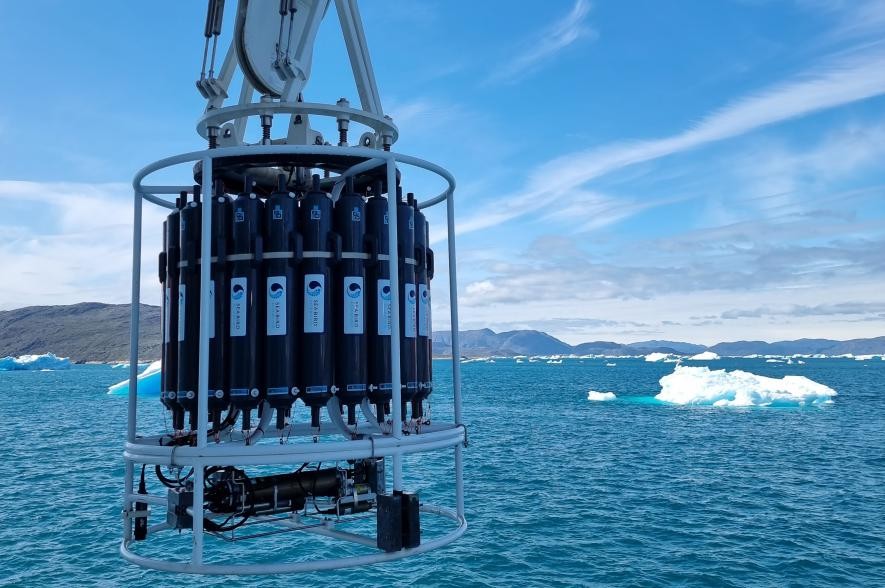As stipulated in the covenant, VLIZ will strongly focus on research into the interface between climate, ocean and biodiversity in the period from 2022 to 2026. Within this scope, a new research group was established with the title ‘Past, Present and Future Climate Change’.
The focus of this research group is on the absorption and storage of carbon dioxide and other greenhouse gases on the Belgian coast, on the European continental shelf and in the worldwide ocean. After all, the ocean functions as an important sink for man-made carbon dioxide and has significant potential for nature-based solutions in the context of climate change. On the basis of data collected via the ICOS and LifeWatch campaigns, VLIZ makes estimates of the absorption and storage of greenhouse gases. These estimates eventually support the regional and global carbon budget analyses, such as the assessment studies of the Global Carbon Budget and the IPCC.
In addition, VLIZ researchers develop new techniques based on machine learning to scale up measurements, investigate long- term changes in the Belgian part of the North Sea and study the response to extreme events such as marine heat waves. They are also involved in the development and operation of instruments and new measurement platforms. These instruments and platforms can upgrade the observation system (within the Integrated Carbon Observation Centre or ICOS) and the evaluation of the earth system model.

In addition, VLIZ collaborates with (inter)national and local partners to conduct climate research in Greenland. This way, it intends to understand how climate change and climate gradients impact the currents, the dynamics of nutrients, plankton and greenhouse gases in the fjords and coastal waters of Greenland. To investigate this, the team performs field work, implements innovative technologies such as autonomous robots and develops new observation systems.
In August 2023, five climate scientists from VLIZ and the University of Liège participated in the first Arctic campaign of the Belgian research vessel Belgica. As part of the European Horizon project GreenFeedBack, they carried out measurements of greenhouse gases at the Tunulliarfik Fjord in Greenland. This enables researchers to study the exchange of greenhouse gases in the fjord and the influence of the meltwater of glaciers on these processes. The eventual purpose of the project is to develop a better understanding of the exchange of greenhouse gases between land, fresh water and the ocean, as well as of the impact of human activities in this region.
VLIZ also contributes to the installation of the Greenland Integrated Observing System (GIOS). The project constructs a series of autonomous, self-supporting observation systems on site, which serve as a central hub and communication platform for a wide range of atmospheric and oceanographic measurements (including the wind, air pressure, precipitation, ocean current, salinity, temperature, turbidity and ice thickness). The data of these systems not only make it possible to better understand strong climate gradients, but are also directly usable for weather and climate models. In addition, the measurements enable researchers to record events taking place on a much shorter timescale, such as the breakup of glacial ice and the occurrence of an impulse of fresh water flowing from the ice cap into the fjords.